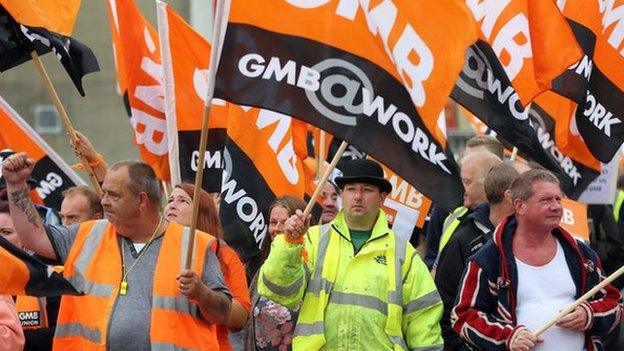Pay protests bring thousands onto UK city streets
- Published
Thousands took part in protests in London, Belfast and Glasgow
Tens of thousands of people have protested in London, Glasgow and Belfast about pay and austerity.
Many of those protesting were public sector workers such as teachers and nurses opposed to a below-inflation 1% pay offer from the government.
The "massive turnout" will send a strong message to Downing Street, the Trades Union Congress (TUC) general secretary Frances O'Grady has said.
The government says pay restraint has safeguarded jobs and services.
A Treasury spokesman said the government had helped workers by cutting income tax, freezing fuel duty and helping local authorities to freeze council tax.
Public sector workers including teachers, nurses, civil servants and hospital workers were among those taking part in the protests, alongside rail and postal workers and others from private firms.
The marches followed public sector strikes earlier this week.
The TUC, which organised the protests under the slogan "Britain Needs a Pay Rise", said between 80,000 and 90,000 people ha taken part in the London march. There has been no independent confirmation of this.
The march in London was "very peaceful and well organised", the Metropolitan Police said, external.
'End the lock-out'
Leaders of some of the UK's biggest trade unions criticised the government, saying pay had fallen despite the economic upturn.
Dave Prentis, Unison: "Our people are suffering"
Dave Prentis, general secretary of the Unison union, said the "best thing" the government could do was "recognise the value of the masses of people here today who have suffered and give them a pay rise".
"Our members didn't cause this recession, our members didn't cause the failures of the banks," he said.
The TUC says average wages have fallen by £50 a week in real terms since 2008.
The union's general secretary Ms O'Grady said: "Our message is that after the longest and deepest pay squeeze in recorded history, it's time to end the lock-out that has kept the vast majority from sharing in the economic recovery."
Len McCluskey, general secretary of the Unite union, said Labour should support workers by offering a "clear socialist alternative" to the Conservatives at the next election.
"I say to Labour - stop being scared of your own shadow. Don't shrink what you offer the British people," he said.
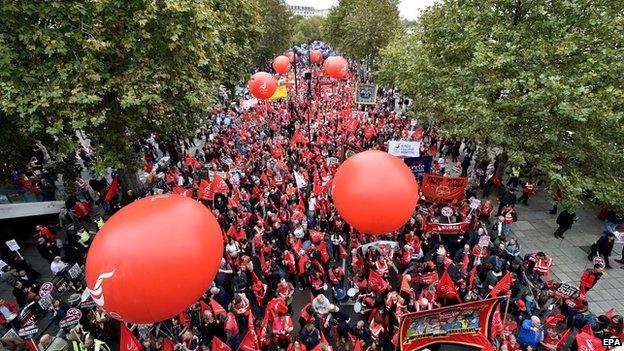
Protests have been held in London (pictured here), Glasgow and Belfast
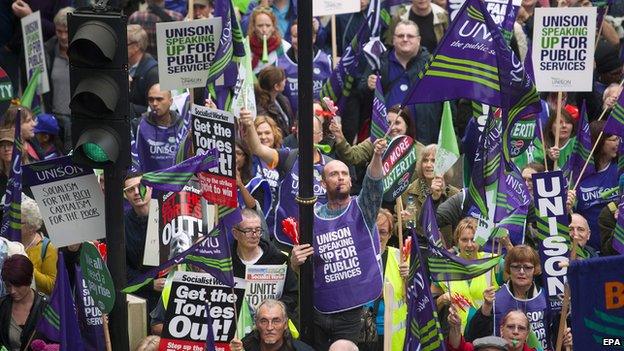
The marches follow strikes by health workers this week over a below-inflation pay offer
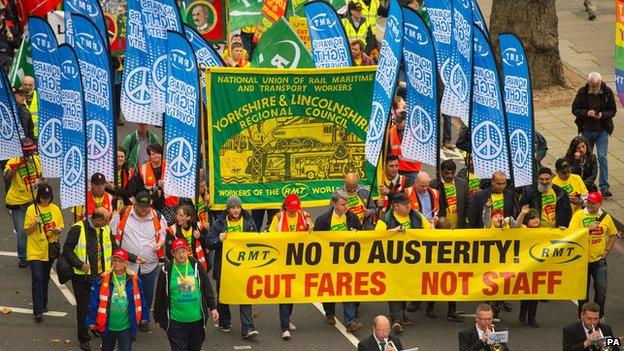
The protests have been organised by the TUC under the slogan "Britain Needs a Pay Rise"
Ms O'Grady said top directors were being awarded 175 times more than the average worker, while five million people were earning less than the living wage.
"If politicians wonder why so many feel excluded from the democratic process, they should start with bread and butter living standards," she said.
GMB union general secretary Paul Kenny said members' living standards were still falling.
"People are currently facing the biggest squeeze on their incomes since Victorian times, and wages have fallen in real terms every year since 2010," he said.

Case study: 'My lifestyle is pressured'
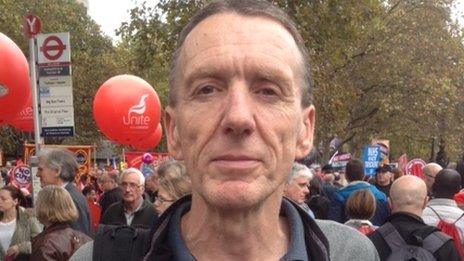
Mick Bowman, 56, is a mental health social worker for Northumberland County Council who lives in Newcastle and is taking part in the march in London.
"I've not had a pay rise for four years so with the cost of living rising, that's a very substantial pay cut," he said.
"At the same time my workload has increased and my job's become more stressful.
"At the end of every pay month I have to use my credit card to live on. I last had a holiday three years ago. So my lifestyle is pressured.
"I feel extremely angry about this. The national deficit was manageable and the way to deal with it is not to cut jobs and shrink the public sector.
"It's time to invest more in the public sector and get people into a position where they are able to spend more and put more money into the tax system."
For more reaction from the protests click here.

'Depth of feeling'
The marches come after industrial action by health workers on Monday - the first strike over pay in the NHS since the 1980s and the first time midwives had ever taken action.
Hospital radiographers and prison officers will strike in the coming week as part of the same dispute.
Cathy Warwick, the chief executive of the Royal College of Midwives, said the response from members showed the "depth of feeling" over the issue.
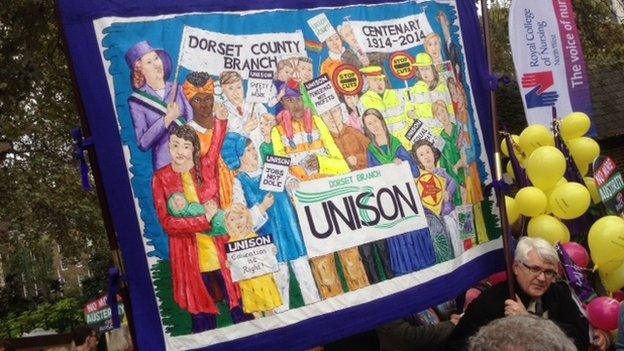
The government says pay restraint has safeguarded public sector jobs and services
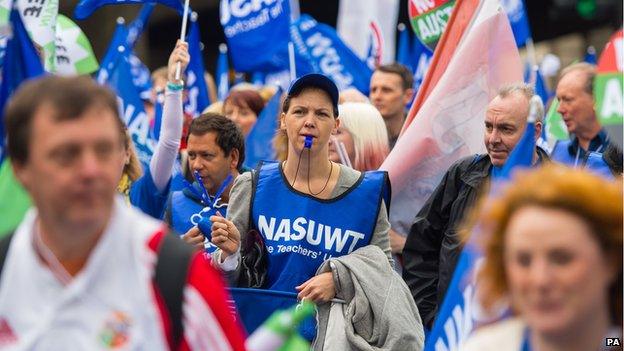
The economy is "on the road to recovery" but the recession's effects are "still being felt", the government says
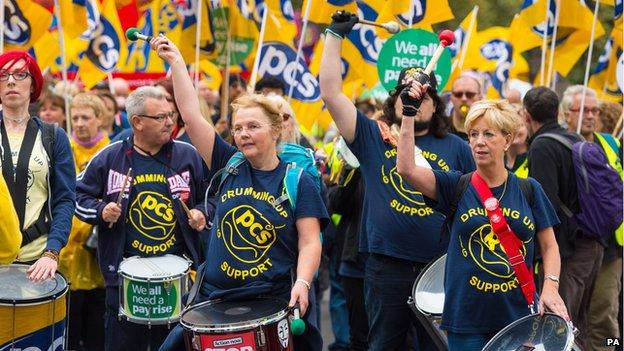
Demonstrators in central London banged drums as they marched towards Hyde Park
A Treasury spokesman said the government had overseen the "largest annual fall in unemployment, more people in work than ever before" and average inequality levels "lower than the average under the previous government".
He said it proved the government's "long-term economic plan is working".
"The only sustainable way to raise living standards is to keep working through the plan that is building a resilient economy and has enabled us to announce the first real terms increase in the minimum wage since the great recession.
"We appreciate that the effects of the great recession are still being felt, which is why we have taken continued action to help hard-working people by cutting income tax, freezing fuel duty, helping local authorities to freeze council tax, cutting energy bills, providing free school meals, and reducing childcare costs."
- Published18 October 2014
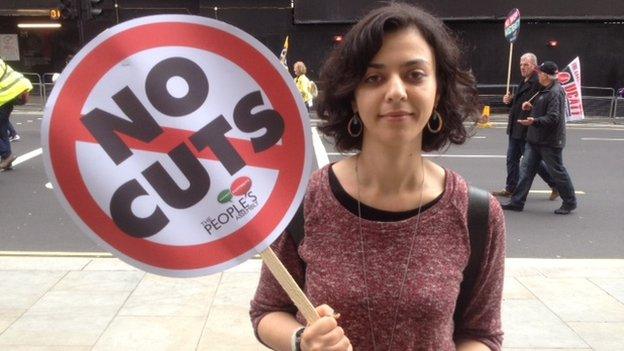
- Published18 October 2014
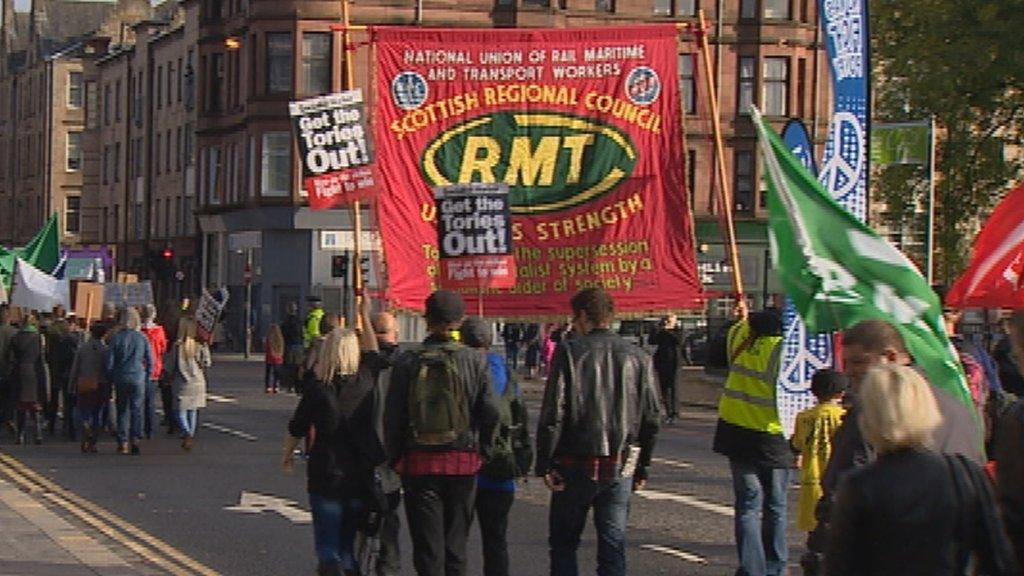
- Published15 October 2014
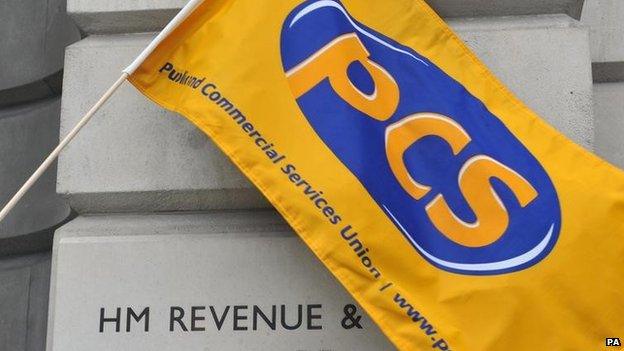
- Published13 October 2014
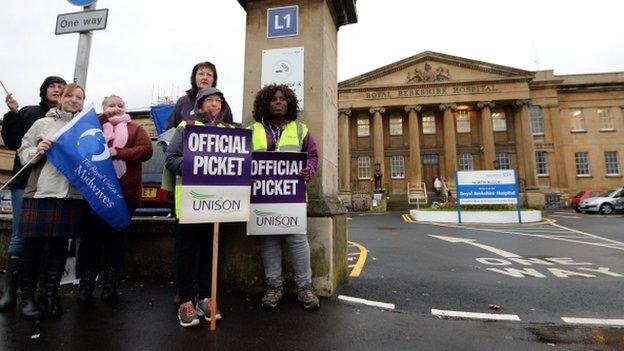
- Published10 October 2014
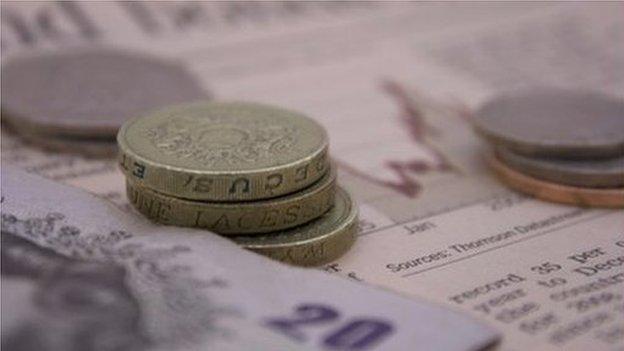
- Published24 September 2014
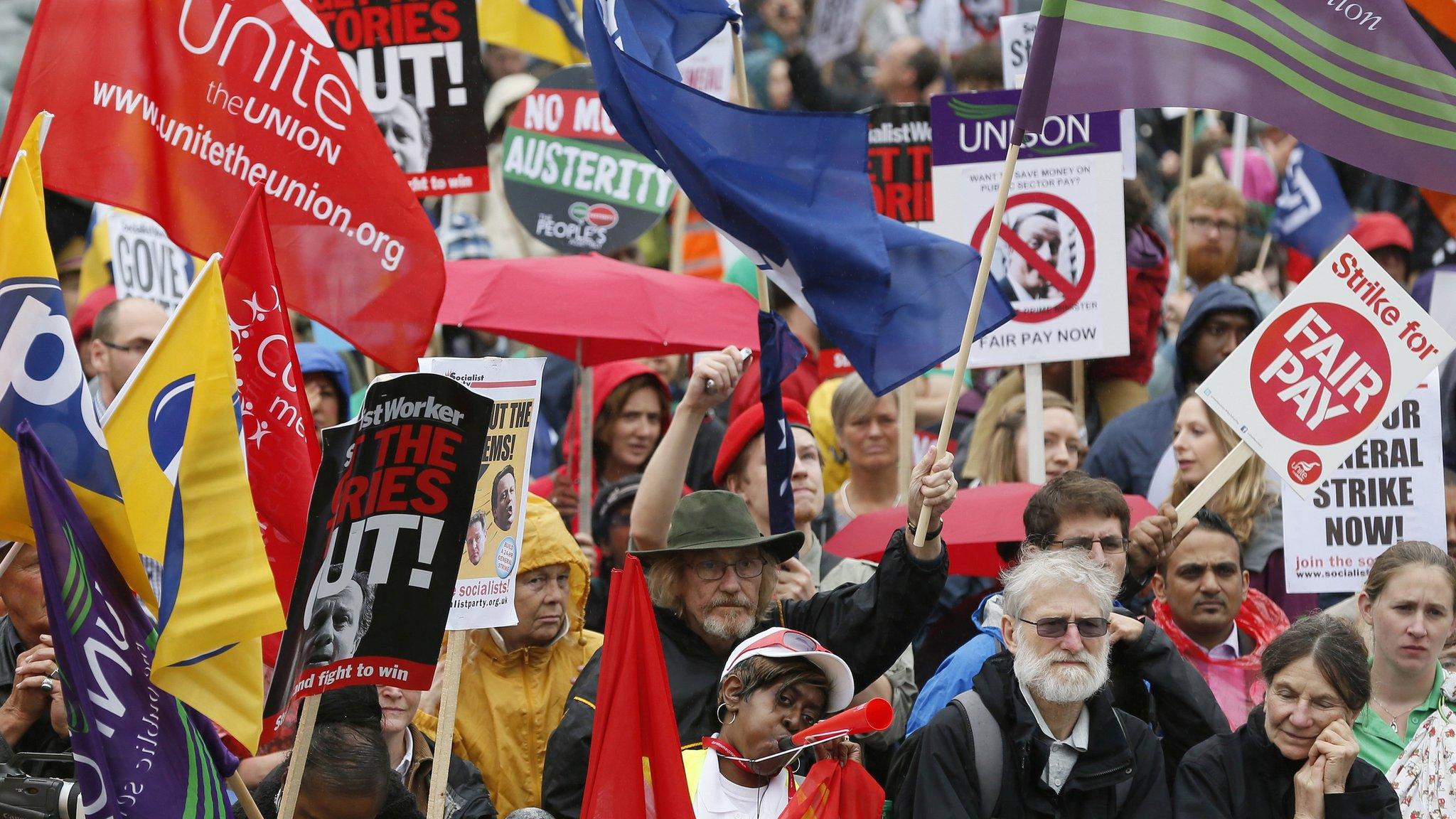
- Published10 July 2014
